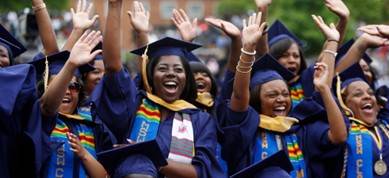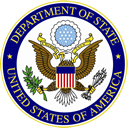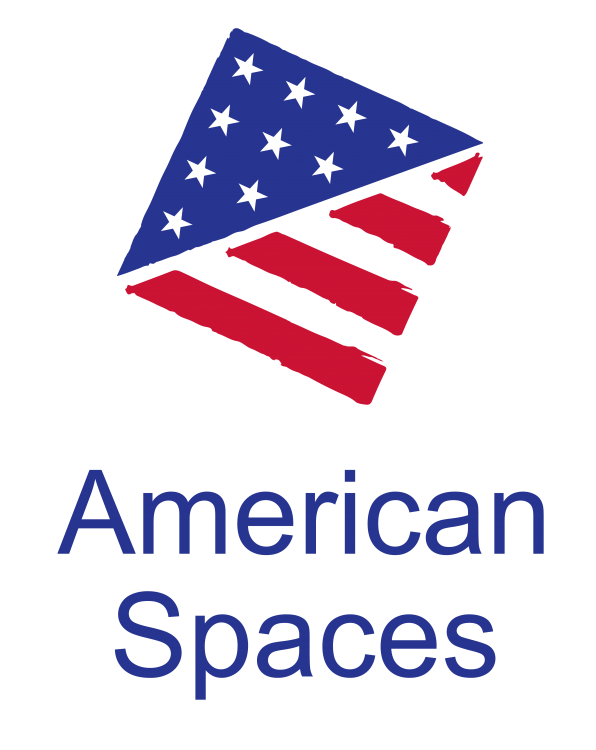HISTORICALLY BLACK COLLEGES AND UNIVERSITIES
RESOURCE TOOLKIT FOR AMERICAN SPACES
This Resource Toolkit contains information to be used at American Spaces to provide information on Historically Black Colleges and Universities (HBCUs), which play an important role in the U.S. higher education system.

DEFINITIONS
- STEM: Science, technology, engineering and mathematics
- Social mobility: The ability to move up to a higher economic level. Historically Black colleges are key contributors for social mobility.
- EducationUSA Advising Centers: Assist potential students around the world to gain access to higher education in the United States. They are often located in U.S. embassies and consulates, and in some American Spaces. There are more than 400 advising centers located in 175 countries.
WHAT ARE HISTORICALLY BLACK COLLEGES?
Students planning to study in the United States should not overlook historically Black colleges and universities (HBCUs), which welcome students of all races and national origins. A growing number of international students are attracted by these institutions’ commitment to social justice and often view themselves as part of a robust historical legacy. The U.S. Department of Education recognizes 107 HBCUs, many of which are found in the former slave- owning states of the U.S. Southeast. A few predate the U.S. Civil War, but most were established later to improve Black citizens’ access to education. Today, HBCUs are a source of accomplishment and great pride for the African-American community as well as the entire nation.
HBCU SPOTLIGHT:
SPELMAN COLLEGE
- #1 HBCU according to USNews and World Report Ranking (2022)
- Founded in 1881 Liberal arts college for women located in Atlanta, Georgia
- Top majors include: Psychology, Political Science, and Biology
HOWARD UNIVERSITY
- #2 HBCU according to USNews (2022)
- Founded in 1867 Research university located in Washington D.C.
- Top majors include Biology, Political Science, and Public Relations
MORE RESOURCES
With thousands of academic programs, world-class institutions, and unmatched flexibility, the United States offers a wealth of higher- education opportunities that you will not find anywhere else in the world!
See if studying in the U.S. is right for you, and learn how to make it happen.

VIDEOS AND DIGITAL MEDIA
There are more than 100 HBCUs in the United States. While they only represent 3% of America’s colleges and universities, they produce nearly 20% of all Black graduates. Further, they produce a quarter of Black graduates in critical STEM fields of study. On average, HBCUs have lower tuition rates than comparable schools. Therefore, they are considered among the best buys in education.
Accredited HBCU listing of schools
DISCUSSION QUESTIONS
- What advantages does an HBCU offer?
- Is higher education right for me?
- Studies indicate that people who graduate from college often have more opportunities, higher career earnings, and even happier and healthier lives.
- How could studying in the United States help me achieve my goals?
- With hundreds of high-quality colleges and universities, studying in the United States opens opportunities for a brighter future. Students can improve their English skills, study a multitude of subjects, enjoy an American student lifestyle, and meet other students from around the world.
FOR FURTHER VIEWING
- Historically Black colleges and universities offer success
- The evolving role of historically Black colleges and universities
- Largest historically Black college welcomes many International students (Video, 2 minutes) North Carolina A&T, the country’s largest HBCU, has boasted of growth as it continues to welcome international students to its campus in Greensboro.
- International Students thrive at U.S. Higher Education Institutions: International students overwhelmingly choose the U.S. as their top education destination.
The views expressed in these links and resources do not necessarily reflect those of the U.S. government.
Updated May 2024









